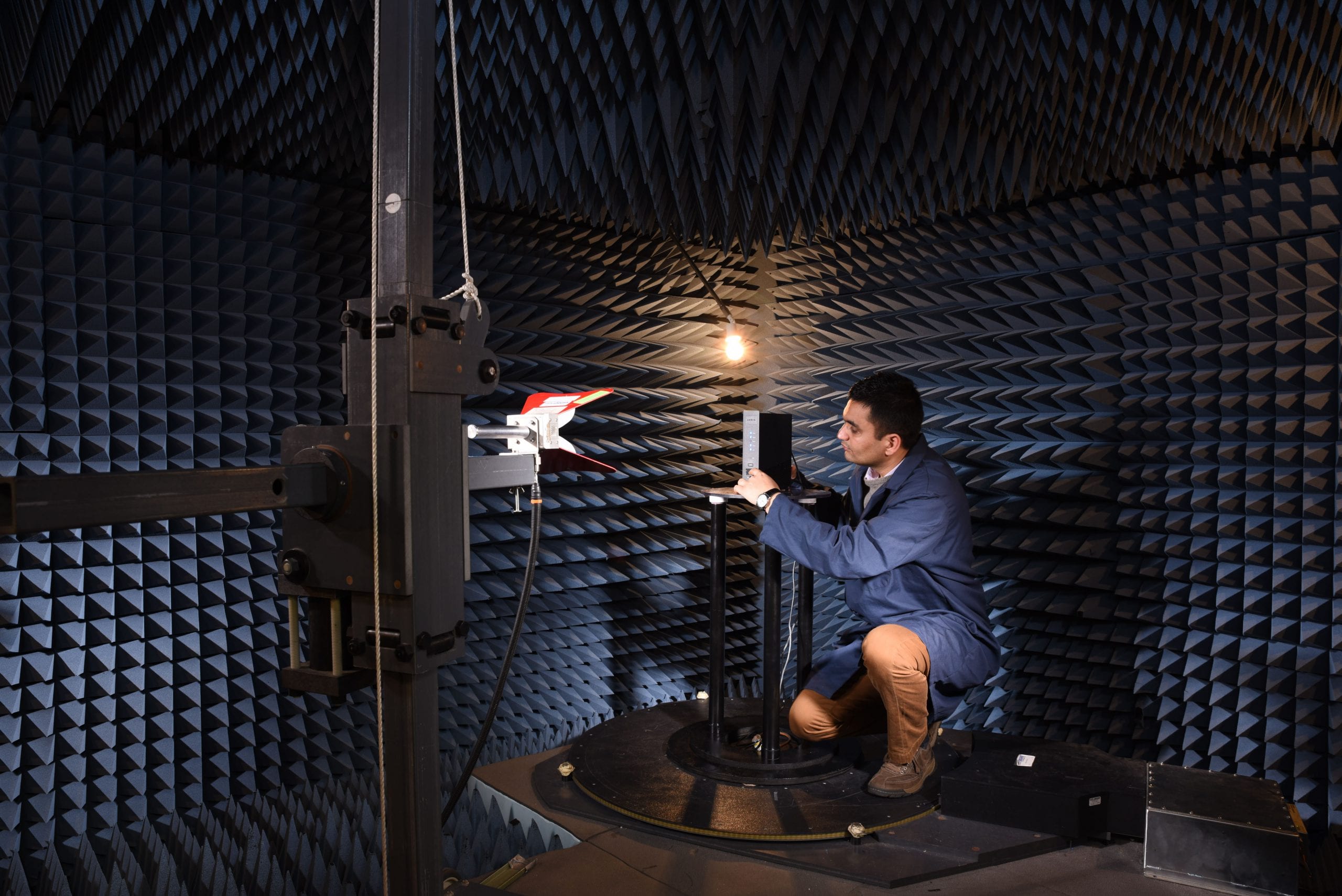Our EMC/EMI Testing Capabilities »
Related EMC/EMI services
What is EMC?
Electromagnetic compatibility (EMC) is the interaction of electromagnetic energy generated by electronic equipment and the surrounding environment. The two main methods of classifying these interactions is through Emissions and Immunity.
What are Emissions?
Emissions are the generated electromagnetic energy that is released into the environment and produced by a device or other source.
What is Immunity?
Immunity and Susceptibility are used interchangeably and can be defined as the interference of electromagnetic energy in the surrounding environment on a device and the tendency of this electromagnetic energy to inhibit proper device functionality.
Why perform EMC testing?
EMC testing is performed to ensure that devices are designed and specified to function in electromagnetic environments they will commonly be exposed. Testing verifies that a device will function in the presence of electromagnetic interference (EMI), the device will not radiate unacceptable levels of electromagnetic energy, and that a device will not disrupt the function of other nearby electronic devices. A typical testing program consists of various emissions and immunity requirements. A few examples include electrostatic discharge testing, surge testing, and possible on-site evaluations.
FCC Certification
The FCC (Federal Communications Commission) EMC (Electromagnetic Compatibility) is a set of regulations and standards established by the Federal Communications Commission (FCC) to ensure that electronic devices and equipment do not cause harmful interference to other electronic devices or systems.
The FCC EMC regulations apply to a wide range of electronic products, including consumer electronics, communications equipment, medical devices, and many others. The regulations specify the requirements for radiated and conducted emissions, as well as immunity to electromagnetic interference.
To meet the requirements of the FCC EMC regulations, electronic products must undergo EMC testing, which involves evaluating the product’s ability to operate in a noisy electromagnetic environment without causing or being affected by harmful electromagnetic interference.
The FCC EMC regulations are an important aspect of ensuring the reliability and safety of electronic products, and are a critical aspect of product development and certification. By complying with the FCC EMC regulations, manufacturers can help ensure that their products are robust, reliable, and safe for use in the United States.
EMI vs EMC testing
EMI (Electromagnetic Interference) and EMC (Electromagnetic Compatibility) testing are related but distinct concepts in the field of electrical engineering.
EMI testing focuses on the measurement of electromagnetic radiation emitted by a device or system, and its effects on other electronic devices and systems. The goal of EMI testing is to determine whether a product complies with regulations and standards that limit the amount of electromagnetic interference it can emit. This is important because high levels of EMI can cause interference with other electronic devices and systems, leading to performance degradation or failure.
EMC testing, on the other hand, focuses on a product’s ability to function properly in the presence of electromagnetic interference. The goal of EMC testing is to determine whether a product can operate as intended in its intended environment, despite exposure to electromagnetic fields. This is important because electronic devices and systems are often subjected to electromagnetic interference from other sources, such as radio transmitters, power lines, and lightning strikes.
In summary, EMI testing is concerned with a product’s ability to avoid causing electromagnetic interference, while EMC testing is concerned with a product’s ability to function properly in the presence of electromagnetic interference. Both types of testing are important for ensuring that electronic products function properly and reliably, and for ensuring the safety of people and the environment.






